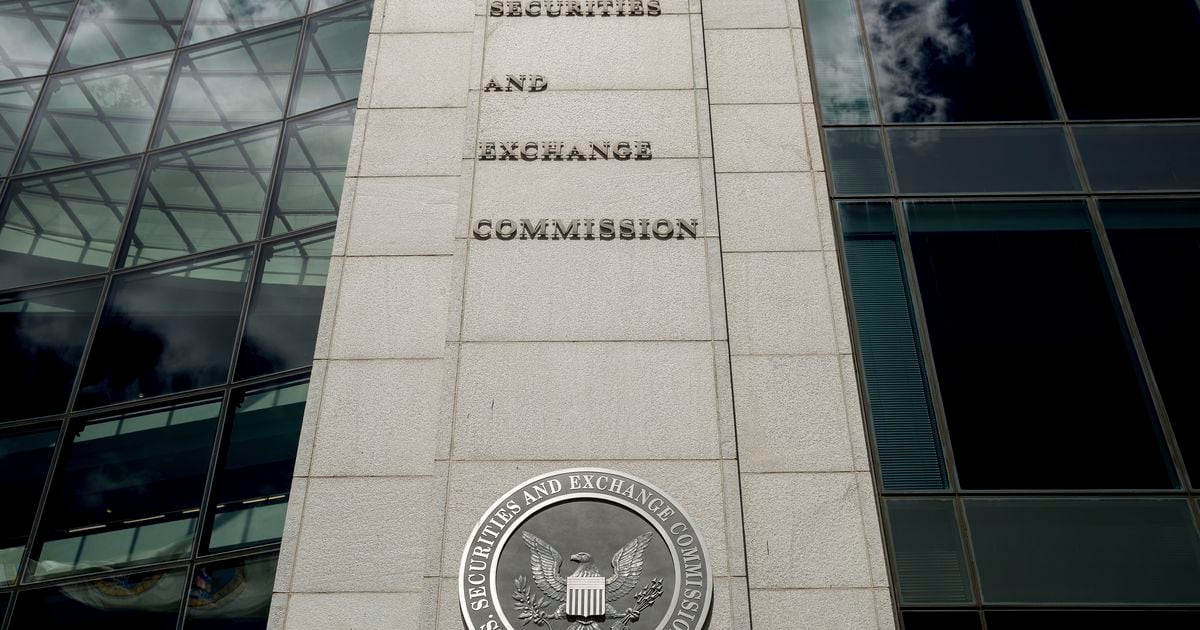A federal judge in Utah has sanctioned attorneys for the Securities and Exchange Commission, saying in a scathing ruling that their argument to freeze the assets of a Utah-based cryptocurrency company included misleading evidence.
SEC lawyers last July successfully petitioned for a temporary restraining order and an asset freeze against DEBT Box, arguing the company’s executives had suddenly moved assets to foreign banks and suggested the movement was evidence the company intended to “evade law enforcement.”
In a ruling issued Monday, Utah U.S. District Court Chief Judge Robert J. Shelby said the SEC argument was incomplete and partially untrue. Shelby ruled the attorneys for the federal financial watchdog presented misleading evidence to obtain the restraining order, and failed to correct the record when given the chance.
The SEC lawyers’ conduct, Shelby wrote, “constitutes a gross abuse of power entrusted to it by Congress and substantially undermined the integrity of these proceedings and the judicial process.”
Several times in his 80-page ruling and analysis, Shelby called the SEC’s conduct “troubling” and said attorneys acted in “bad faith” to get their way. The federal agency now will have to pay DEBT Box and codefendants’ attorneys’ feels and any other legal costs associated with the temporary restraining order and asset freeze.
But Shelby also denied, for now, the SEC’s motion to dismiss the case.
An SEC spokesperson said the agency is reviewing Shelby’s decision. Attorneys for the SEC said in earlier filings that they did not intend to mislead the court, and argued there is still evidence DEBT Box has harmed, and continues to harm, investors.
Richard Hong, the lead attorney for Draper-based DEBT Box, declined to comment on the case Wednesday, citing ongoing litigation.
Fraud allegations
The SEC filed a complaint against DEBT Box and roughly two dozen associated individuals and business entities last summer, alleging the cryptocurrency brokers lied to investors about “virtually every aspect” of their business, and lined their pockets with fraudulent earnings.
DEBT Box is the public-facing business name of Digital Licensing, Inc. and calls itself a “decentralized, eco-friendly blockchain technology project.” Investors can buy software “nodes” and build their own blockchain network using less energy than traditional crypto mining, the website claims, and allowing buyers to “earn rewards from several asset classes, all from the comfort and convenience of your own home.” The company also claims its projects are safe for investors, because they are “supported by royalties from real-world industries and commodities production/sale.”
In its complaint, unsealed in July, the SEC claimed DEBT Box’s principals — brothers Jason and Jacob Anderson, Schad Brannon and Roydon Nelson — were not registered cryptocurrency brokers and were therefore selling “sham” tokens, cryptocurrencies with no real value.
“And rather than use the investor funds generated from the sale of the node software licenses to support those underlying businesses,” the complaint said, “Defendants misappropriated the funds for their own personal gain — buying luxury vehicles and homes, taking lavish vacations, and showering themselves and their friends with cash.”
Restrained and frozen
The SEC asked Shelby in July to grant a temporary restraining order against DEBT Box and its associates, and to freeze the company’s assets. Shelby was prepared to decline, according to his Monday judgment, claiming SEC attorneys had not proven certain such essential elements as “irreparable harm.”
SEC attorneys doubled down, the judgment says. Central to the SEC’s argument for obtaining a restraining order was the fact that DEBT Box and its principals had moved money overseas, including to a bank in the United Arab Emirates.
“[Defendants] have said in videos that the reason they are doing this is to avoid SEC jurisdiction,” an SEC attorney argued in July.
Then, in a “final attempt” to convince Shelby to grant a restraining order, SEC attorney Michael Welsh told the judge that he was “reminded by investigative staff … that even in the last 48 hours Defendants have closed additional bank accounts, and I believe the number, I don’t have it in front of me, was around 33 bank accounts.”
That revelation was “the most significant evidence” that DEBT Box associates were trying to evade authority and hide funds, Shelby said — and it was enough to convince the judge to issue the restraining order.
But it was not entirely true, the sanction order says — and when confronted about its factual accuracy, SEC attorneys did not correct the record.
“Not only were no accounts closed in the 48 hours before the hearing, no accounts were closed in all of July 2023,” Shelby wrote in his sanction oder.
SEC attorneys eventually admitted their statement was “inaccurate” and based on a “misunderstanding,” according to court documents, but argued the fact was “immaterial” to the case at-large.
Shelby did not buy it.
“Given these circumstances, it is difficult to accept that Commission staff did not believe the misrepresentation was material,” Shelby wrote. “Indeed, it likely was the most material and impactful representation made in support of the Commission’s … Application.”
Shelby also determined the SEC had taken statements made by Jacob Anderson out of context. SEC attorneys pointed to a YouTube video in which Anderson admitted DEBT box had moved its operations to Abu Dhabi so that it would be “under the jurisdictional control of Abu Dhabi, not the SEC.” The statement was presented as evidence defendants were trying to evade U.S. authority by moving assets overseas.
Instead, the court concluded, the statement was made in response to a viewer question about the “‘SEC squeeze on crypto’ and its potential implications for DEBT Box.” Anderson had said Abu Dhabi provided a “clearer regulatory framework” for cryptocurrency brokers. DEBT Box had, indeed, moved its operations overseas, but the video was not evidence of evasion, Shelby ruled, nor did it prove defendants were “in the process of moving assets or funds overseas.”
Shelby reversed the restraining order and freeze in November, after reviewing the evidence and determining it was, at best, misleading. The SEC apologized in December and asked the court not to impose sanctions, according to court documents.
But Shelby ruled the SEC acted in “subjective bad faith,” and that sanctions were appropriate.
“The critical evidence the Commission offered to obtain and defend the ex parte TRO [temporary restraining order] lacked any basis in fact, yet the Commission nonetheless advanced that evidence in deliberately false and misleading ways,” Shelby wrote. “Further, this was done for an improper purpose — to appropriate and abuse the power of the court to impose extraordinary relief upon Defendants, relief the Commission would not have been entitled to had it been candid with the court.”
Case [not] dismissed
Shelby also denied the SEC’s motion to dismiss the case entirely, for now. The SEC filed the motion in February so that regulators could “complete its review of the record” and, eventually, re-file.
The agency said it would refile the case against DEBT Box, and argued there is still evidence “that retail investors have been and are being harmed,” according to the motion.
Shelby said the SEC’s motion did not satisfy Utah district court’s local requirements and offered “no legal authority or argument in support of its request.”
So the SEC’s case against DEBT Box moves forward, for now. The SEC argued in its motion that there is still evidence “that retail investors have been and are being harmed.”
Shannon Sollitt is a Report for America corps member covering business accountability and sustainability for The Salt Lake Tribune. Your donation to match our RFA grant helps keep her writing stories like this one; please consider making a tax-deductible gift of any amount today by clicking here.







